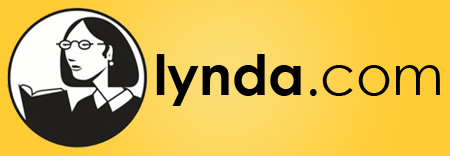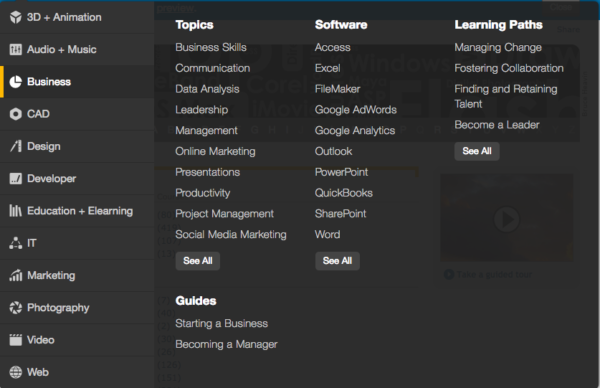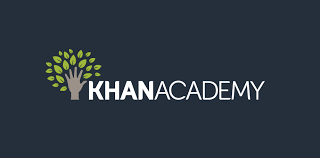You’re the kind of person that wants to make learning a daily ritual. You’re on track to be healthy and financially secure, and now you want to know about things and how to do stuff. You’re curious. You’re interested in cause and effect. You understand that taking a few minutes every day to build your mind is part of a daily investment in yourself.
Well, my good sir/madame, it just so happens that now is a fantastic time to be alive. You are Marco Polo, and the Internet is your silk road to a wealth of knowledge. This information superhighway has flattened the world and democratized knowledge. The options for learning are virtually endless. Following your curiosity has never been easier (or cheaper). From almost anywhere in the world with a few clicks of your mouse, you can learn foundational subjects like history, literature, mathematics, science, philosophy, and the humanities. You can also learn very specific skills like computer programming, graphic design, presentation software, and, of course, how to hunt for ghosts.
In fact, the endless possibilities can be the biggest problem. There are too many options. It’s like an all-you-can-eat buffet of every kind of food imaginable (including coconut tree grubs and Horse-Rib-and-Rectum Sausage). It’s easy to be overwhelmed by the so many choices. You may run into the paradox of choice. That’s why it’s so important to have a plan and to keep it simple. Know what you are looking for and then see where the best options are.
As with all things in our hyper-dynamic world, the learning options and platforms are in constant flux. So, keeping that in mind, here are some of the best resources I’ve found to date.
Best Online Learning Platforms
Lynda.com (owned by LinkedIn, which is now owned by Microsoft):
The topics cluster around how to create digital stuff like animation, design, photography, IT and web. The courses are categorized by “topics,” “software,” and “learning paths.”
This site is best for people who want to build their skills, especially with software. I’ve used it to up my game with presentation software, photography, and photo editing.
Lynda.com is not free. It’s $19.99 (Basic) to $29.99 (Premium-includes practice and offline viewing) per month for unlimited courses. However, many public libraries have made arrangements to allow their patrons to get access for free so you can use it from anywhere if you have a library card. Just go to your library’s website and look for a link.
This site was started by Sal Khan to teach his cousin about math. The site has grown into a much larger movement to provide a “free, world-class education for anyone, anywhere.” As of 2017, Khan Academy’s videos on YouTube have been viewed over 1.2 billion times.
The target audience is high school students; however, adult learners can also benefit depending on their interests and goals.
Most people know that YouTube has fantastic cat videos, however, it is also a great resource for how to do stuff. I use it a lot for just-in-time help around the house. Like a few weeks ago when I found another sink plugged (routine issue with six kids). I knew that I needed to get into the pipe below the sink basin, but I couldn’t figure out how to get the plastic sink stopper thingy (technical term) out of the hole in the bottom of the sink. YouTube to the rescue. A couple of minutes on YouTube watching a video or two and I felt like a sink pro.

When on YouTube, keep your blinders on.
YouTube has a massive amount of content, and it can be very hard to navigate. The biggest danger in using it is getting lost in a YouTube vortex and losing years of your life. However, if you know what you’re doing, keep your blinders on, it can be a great learning resource.
Best Massive Open Online Courses
Another new-ish way to learn online is through massive open online courses (called MOOCs). MOOCs are online courses aimed at unlimited participation (i.e.”massive”) and open access via the web. While there are many variants of what a MOOC is, it is generally thought of as the evolution of distance learning at a college level.
What makes these different from other online learning sites like Lynda.com is that they are organized like an online college course with lectures, readings, and practice problems or learning exercises. They have start and end dates, and all the participants go through the course together. They can either be free or paid depending on if you want a certificate. When compared to paying for credits at universities, even the paid option is super cheap.
Two of the most popular platforms are Coursera and EdX. Both partner with colleges and universities to develop online classes. Students have the option to either audit a MOOC for free or pay about $30 to $150 to earn a “verified certificate.”
So why would you pay? Good question. The jury is still out on this. The idea is that you could then post the credential on your resume or on career sites like LinkedIn. Perhaps a more interesting (and more subtle) reason is that people who pay are 10 times more likely to finish the course. It looks like another example where behavioral psychology beats math. When you put money down on something, you put in the effort to actually DO the work (an underrated life hack, but that’s a topic for another day).
Coursera was one of the first MOOCs out of the blocks and has benefited from a first mover advantage. Statistics from 2016 showed 23 million registered users and 1700+ courses. EdX has about 10 million users and 1300 courses.
Best Recorded Audio and Video Courses
 Another great source of college-level audio and video courses is The Great Courses produced by The Teaching Company. These courses predate MOOCs by a couple decades. These differ from MOOCs in that they don’t have schedules, homework, exams, or certificates. You just watch or listen to the lectures. Think of it like auditing a college class–just the fun part. If you need an endorsement, Bill Gates watches these as he exercises in his 22,000 square foot home.
Another great source of college-level audio and video courses is The Great Courses produced by The Teaching Company. These courses predate MOOCs by a couple decades. These differ from MOOCs in that they don’t have schedules, homework, exams, or certificates. You just watch or listen to the lectures. Think of it like auditing a college class–just the fun part. If you need an endorsement, Bill Gates watches these as he exercises in his 22,000 square foot home.

Learn everything about anything. Unlimited Video Access to the World’s Greatest Professors
Inspired by a Harvard videotaped lecture series, the company has recruited the top professors and experts from across the country to teach the courses.
The topics are far ranging. As of 2016, the company offers over 600 courses ranging in length from six lectures to over ninety lectures in several subject categories: business, economics, fine arts, music, ancient and medieval history, modern history, literature and English language, philosophy and intellectual history, religion, science, mathematics, social sciences, professional development and better living.
These courses can be purchased individually on DVD or CD (old business model), or they can be streamed by using TheGreatCoursesPlus.com ($14.99 for a monthly subscription for unlimited viewing like Netflix). They also have a pretty interesting podcast and a newsletter.
A couple of my favorites have been Meaning of Life: Perspectives from the World’s Great Intellectual Traditions and Everyday Engineering: Understanding the Marvels of Daily Life.
Educational Podcasts

Podcasts are a great way to spend your commute (tip: if you don’t have a commute, take a 20-minute walk twice a day). Use a podcasting app (I recommend Downcast for iOS and Pocket Casts for Android) to subscribe and search for the titles below. Here are my favorites.
Stanford Entrepreneurial Thought Leaders (eCorner) – Featuring talks from leaders in technology, business, finance, education, and philanthropy.
TedTalks (and TED Radio Hour) – Inspiring talks. No additional explanation needed.
StarTalk Radio – Astrophysicist and Hayden Planetarium director Neil deGrasse Tyson, his comic co-hosts, guest celebrities and scientists discuss astronomy, physics, and everything else about life in the universe.
Tim Ferris – Tim, the author of the popular 4-hour Workweek, deconstructs world-class performers from eclectic areas (investing, sports, business, art, etc.) to extract the tactics, tools, and routines you can use. This includes favorite books, morning routines, exercise habits, time-management tricks, and much more.
Stuff You Should Know – an entertaining podcast to educate the public about common things and how they work.
A History of the World in 100 Objects – Director of the British Museum, Neil MacGregor, narrates 100 episodes that retell humanity’s history through the objects we have made.
Freakonomics – A podcast that aims to have fun discovering the “hidden side of everything” with host Stephen J. Dubner, co-author of the best-selling “Freakonomics” books. These are fun and entertaining conversations that explore the riddles of everyday life—from cheating and crime to parenting and sports.
Planet Money – From the website, “The economy, explained, with stories and surprises. Imagine you could call up a friend and say, ‘Meet me at the bar and tell me what’s going on with the economy.’ Now imagine that’s actually a fun evening. That’s what we’re going for at Planet Money.”
Money For the Rest of Us – A weekly chat where you get a big picture understanding of how money, the economy, and financial markets work through stories, analogies and easy to understand examples.
So Now What?
Whew . . . that was quite the smorgasbord of learning options. You will quickly see why it is very important to have a plan. Just as you can’t eat everything on the restaurant menu, you must choose carefully as you begin your online learning journey. The paradox of choice is real and it can torpedo your efforts with analysis paralysis. At all costs, avoid an early failure. Start small. Choose a skill or a topic that meets a need in your life right now and then check out which of the above options fit the bill. Spend 30 minutes a day or 90 minutes every other day.
What do you think of online learning? What have you tried and liked? How do you keep from being overwhelmed with the options? Share below!










Great list!
I also learn a lot from audio books from my library and Audible.com
Yes. I should have added Audible.com. I just don’t like the business model since they use credits and require you to buy the books. I wish they would use a subscription service and allow unlimited listening like Netflix.
Great list!
I still prefer books, though. Online, I get distracted so easily…
TedTalks are awesome. Not too long 🙂
Distraction is a major challenge. The book Deep Work has some good suggestions.
Thanks for the suggestion.